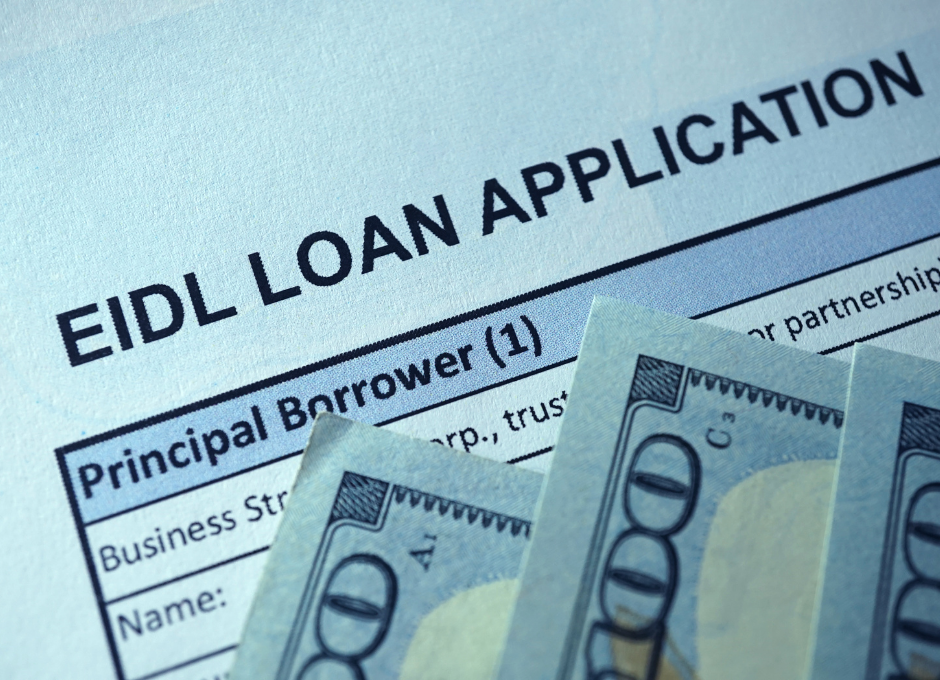The pandemic's aftereffects won't go away for a while. And as a result, many small business owners still struggle to overcome the challenges.
Moreover, small businesses and individuals are facing challenges due to pandemic such as inflation, supply chain, shortage of qualified personnel, and more. Small business owners are working to discover solutions to all of these problems, and the American Rescue Plan Act (ARPA) is taking place, which distributes funds to municipalities across the country to fund recovery efforts.
In today's guide, we'll understand the affect of the American Rescue plan act on small businesses and individuals. Let's take a look on what we'll cover ahead in this guide:
SSBCI Provides Assistance to Small Businesses
What American Rescue Plan Programs Are Beneficial to My Small Business?
How Do You Apply an American Rescue Plan Application for Small Business Relief?
Does the Economic Stimulus Payment Apply to Small Business Owners?
Additional Financial Aid Provided by the American Rescue Plan
Let's Learn!
Intermediary
On March 11, 2021, President Biden approved H.R. 1319, the American Rescue Plan Act (ARPA). As part of this $1.9 trillion stimulus programme, $50 billion in small business support is provided through loans, grants, and other measures.
Small firms make up about half of all American jobs, provide 44% of the country's GDP, and produce 2/3 of all net new jobs. Following the COVID-19 pandemic outbreak and ensuing economic catastrophe, millions of main street small businesses are currently struggling to make ends meet.
The American Rescue Plan will alter the pandemic's trajectory, provide urgent assistance to American workers and small companies, and create a path for economic recovery.
SSBCI Provides Assistance to Small Businesses
The State Small Business Credit Initiative (SSBCI), which distributes lender-provided funds to nonprofit organizations and companies with fewer than 500 employees, will get $10 billion of the bailout package.
To find out if your company qualifies for SSCBI, speak with your outsourced HR partner as each state administers this programme differently.
Here are the five things that small business owners should be aware of:
1. Up to May 31, more companies are eligible for PPP loans.
A larger number of small firms are now eligible to apply, in addition to the Paycheck Protection Program (PPP) receiving an extra $7.25 billion as part of the law.
Publishers of periodicals with many locations and only available online are now participating in the initiative. With no more than 500 employees per physical location, veteran organizations and larger 501(c)(3) organizations are now permitted to join.
Additional covered not-for-profit enterprises, larger 501(c)(6) organizations, domestic marketing firms, and other organizations with fewer than 300 employees per physical site are now included in the extended eligibility criteria.
Due to a decision taken by the Biden Administration before to the bill's enactment, independent contractors and sole proprietors who apply for the loan can now use "gross income" (line 7 on their Schedule C tax form) instead of "net income" to determine their loan eligibility. The size of many people's loans will significantly increase as a result of this shift.
The majority of the program's other requirements continue to be applicable, including second-round loans for companies that have seen a fall in revenues and an expansion of the categories of expenses that can be forgiven.
On March 25, Congress extended the application deadline for the Paycheck Protection Program. The Act would set a new application deadline of May 31; however, the Small Business Administration (SBA) will be allowed to accept applications for up to 30 days after the new deadline.
2. Businesses located in low-income communities are given more grants.
A community is considered low income if its average household income is between 50% and 80% of the adjacent communities' average. You can be qualified for a special reward if the Small Business Administration (SBA) finds that your company is situated in one of these areas.
According to the amount that the entity's gross receipts decreased during a comparable eight-week period immediately preceding March 2, 2020, the bill allocated $15 billion for grants for businesses in low-income communities that have no more than 300 employees and that have experienced an economic loss of more than 30%.
Additionally, no later than 14 days after the American Rescue Plan Act is passed, the SBA must start a two-week period of taking applications from any applicants who previously registered for targeted Advances under the Economic Injury Disaster Loan programme but, due to a lack of funds, did not received the full amount to which they were entitled.
Additionally, the SBA may provide $5,000 grants to "severely affected" small businesses, which are defined as eligible businesses with less than 10 employees and an economic loss of more than 50%. The SBA can then decide to give $5,000 grants to "seriously harmed" businesses, which are those with fewer than 10 employees and who can demonstrate a loss of between 30% and 50%.
You can apply for these funds directly on the Small Business Administration website if you reside in a area that is affected.
3. Two more (generous) tax credits have been extended.
Businesses that shut down entirely or partially in a quarter or witnessed a 20% (or 50%) or greater decline in income from the prior year are qualified for the Employee Retention Tax Credit, which offers a significant tax credit (up to $7,000 per employee per quarter in 2021) against the payroll taxes owing.
The credit is still accessible to you and is calculated on your quarterly federal 941 payroll tax return, even if you take part in the Paycheck Protection Program.
However, you cannot calculate forgiveness and credit using the same payroll data at the same time. The good thing about this credit is that you can get your money back if the credit exceeds the amount of taxes you owe.
The American Rescue Plan Act stipulates that this credit is available through December 31.
Furthermore, the American Rescue Plan Act provides for the availability of this credit through December 31. Although the Families First Coronavirus Response Act's requirements ceased to be mandatory in 2021, you can still use the Act's tax credit to earn money back if you still pay employees who miss work due to COVID-related illness to themselves or family members. The list of acceptable excuses for absences from work has been broadened to now include complications after vaccines.
This credit, which is now valid through September 30th, is also claimed on your quarterly federal 941 payroll tax return.
4. Your company's health insurance costs will be aided by a new tax credit.
The Consolidated Omnibus Budget Reconciliation Act of 1985, or COBRA, is widely known among companies and employees because to its long existence. The Act allows employees to keep their health insurance coverage with their company even after they've parted ways as long as they continue to pay their rates for a set period of time.
When businesses were forced to lay off employees due to the pandemic because they couldn't afford the premiums, many employees risked the risk of losing their health care.
Businesses now have access to a tax credit through the American Rescue Plan Act that effectively reimburses them for the expense of paying these premiums. The credit has other restrictions and expires on September 30; thus, it is essential to discuss your specific situation with your tax or payroll counsel.
5. There is a new grant programme for proprietors of bars and restaurants
The Restaurant Revitalization Fund is intended for eateries, bars, concession stands, taverns, food carts, caterers, tasting rooms, food trucks, saloons, inns, lounges, brewpubs, taprooms, and any other permitted location or premises of a beverage alcohol producer where the public may sample try or buy products, or other comparable places of business where the public or customers congregate with the primary goal of receiving services.
These organizations may be compensated up to $10 million for any revenue decline they incurred in 2020 compared to 2019. Payroll and running expenses are some of the items that must be paid for with the money.
The law allotted this fund around $29 billion, with $5 billion reserved for qualified applicants with 2019 gross receipts of $500,000 or less.
Additionally, the measure mandates that funds be given out "equitably to qualifying companies of varying sizes based on yearly gross receipts" by the Small Business Administration (SBA). During the first 21 days of the funding, the SBA will give preference to applications from restaurants owned and run or controlled by women, veterans, or people from disadvantaged socioeconomic backgrounds.
What American Rescue Plan Programs Are Beneficial to My Small Business?
In order to aid suffering businesses across the nation, the American Rescue Plan Act expanded a number of already-existing programmes and added new small business incentives, including:
- A Community Navigator programme will be created with $100 million, with the goal of assisting underprivileged business areas and enhancing access to COVID-19 relief initiatives.
- The Act did not alter the current loan deadline of March 31, 2021, but it did provide an additional $7.25 billion for the Paycheck Protection Program (PPP). There has just been a bipartisan bill filed to push back the application and processing dates.
- SVOG and PPP loan debtors are now both eligible under the modified Shuttered Venue Operators Grant (SVOG) scheme.
- The Restaurant Revitalization Fund, which aims to assist qualifying enterprises that have been impacted by the pandemic, was established with $28.6 billion. Grants of up to $5 million and $10 million can be given to individual restaurants and restaurant organisations, respectively.
- Targeted Economic Injury Disaster Loan Advance (EIDL) payments will get $15 billion in additional funds, $5 billion of which will go to the most severely impacted enterprises.
How Do You Apply an American Rescue Plan Application for Small Business Relief?
The PPP and/or EIDL programmes are available to eligible small businesses through SBA-approved lenders across the nation, even though some of the relief programmes and grants have not yet begun. PPP loan applications must be submitted by March 31, 2021, while EIDL applications must be submitted by December 31, 2021.
The Shuttered Venue Operators Grant and the Restaurant Revitalization Fund are two of the new initiatives included by the American Rescue Plan Act that have not yet begun.
Though the dates and eligibility conditions for both relief programmes are not yet known, the SBA will disclose more information as it becomes available.
Does the Economic Stimulus Payment Apply to Small Business Owners?
Millions of Americans will also get direct stimulus payments totaling up to $1,400 as part of the American Rescue Plan. As long as they are citizens or residents of the United States and were not listed as a dependent of another taxpayer, small company owners are eligible for the payout. A valid Social Security number and an AGI of no greater than the following are additional requirements.
- $0 if you are a qualified widow or widower, or $150,000 if you are married and filing jointly.
- If filing as the head of household, $112,500
- $75,000 for individuals, people married filing separately, and people who file their taxes solely.
Individuals with AGIs over the aforementioned income thresholds but below the following income restrictions receive reduced payments:
- $160,000 for an eligible widow or widower who is married and submitting a joint tax return.
- if filing as the head of household, $120,000
- $80,000 for individuals, married individuals filing separately, and single tax filers.
Taxpayers having AGIs that are higher than the aforementioned income thresholds are not eligible for stimulus funds.
Additional Financial Aid Provided by the American Rescue Plan
Additional information and additional funding allotments under the new bill.
Housing Assistance
Check the following housing assistance provided:
- The FEMA Emergency Food and Shelter programme will receive $510 million to support organizations that offer services to the homeless and operate overnight shelters.
- The states and localities will receive $5 billion to support those who are at danger of homelessness.
- $5 billion will be used to provide homeless people with emergency housing vouchers, which will cover one month's rent, mortgage assistance, and utilities bills.
- $20 billion will be used to provide low-income households with assistance with utility and rent arrears.
- $10 billion to aid households in financial difficulty with their mortgages, electricity, and property taxes.
Food Assistance
Check the following food assistance provided:
- In addition to the 15 percent increase in food stamp payments that has been extended through September, the Special Supplemental Nutrition Program for Women, Infants, and Children will get $880 million (known as WIC).
- The Pandemic-EBT programme, which pays money to families whose children's schools are closed with funds to replace free- and reduced-price meals the children would have gotten, is permitted to continue in all 50 states into the summer.
Healthcare Assistance
Check the following healthcare assistance provided:
- Public health employees will be hired with $7.7 billion.
- $50 billion for testing COVID-19
- $20 billion for the distribution of vaccines
- To help rural health care providers, the Provider Relief programme will get $8.5 billion.
Local and Governmental Aid
Check the following local and government aid provided:
- $10 billion infrastructure programme to support continuing capital investments by local governments
- $350 billion will be used to establish the State and Local Coronavirus Relief Fund, which will give state, local, tribal, and territorial governments crucial assistance.
Tax Credits
Certain tax credits have been modified, enlarged, and extended by the American rescue Plan Act (ARPA); some of which are applicable to both companies and people. What you need to know is as follows.
You must research and check the COVID-19 tax credit for complete information on tax credits that resulted from the covid-19 pandemic or that have altered as a result of legislation designed to offer financial help as a result of the pandemic.
How Deskera Can Assist You?
Deskera People can help you with your new small business venture remarkably well. It allows you to conveniently manage leave, attendance, payroll, and other expenses. Generating pay slips for your employees is now easy as the platform also digitizes and automates HR processes.
Moreover, features like a flexible payment schedule, custom payroll components, detailed reports, customizable pay slips, scanning, uploading expenses, and creating new leave types make your work simple and effective.

Key Takeaways
We've arrived at the last section of this guide. Let's have a look at some of the most important points to remember:
- On March 11, 2021, President Biden approved H.R. 1319, the American Rescue Plan Act (ARPA). As part of this $1.9 trillion stimulus programme, $50 billion in small business support is provided through loans, grants, and other measures.
- The American Rescue Plan will alter the pandemic's trajectory, provide urgent assistance to American workers and small companies, and create a path for economic recovery.
- The State Small Business Credit Initiative (SSBCI), which distributes lender-provided funds to nonprofit organizations and companies with fewer than 500 employees, will get $10 billion of the bailout package.
- A larger number of small firms are now eligible to apply, in addition to the Paycheck Protection Program (PPP) receiving an extra $7.25 billion as part of the law.
- With no more than 500 employees per physical location, veteran organizations and larger 501(c)(3) organizations are now permitted to join.
- Due to a decision taken by the Biden Administration before to the bill's enactment, independent contractors and sole proprietors who apply for the loan can now use "gross income" (line 7 on their Schedule C tax form) instead of "net income" to determine their loan eligibility. The size of many people's loans will significantly increase as a result of this shift.
- A community is considered low income if its average household income is between 50% and 80% of the adjacent communities' average. You can be qualified for a special reward if the SBA finds that your company is situated in one of these areas.
- the SBA may provide $5,000 grants to "severely affected" small businesses, which are defined as eligible businesses with less than 10 employees and an economic loss of more than 50%. The SBA can then decide to give $5,000 grants to "seriously harmed" businesses, which are those with fewer than 10 employees and who can demonstrate a loss of between 30% and 50%.
- The credit is still accessible to you and is calculated on your quarterly federal 941 payroll tax return, even if you take part in the Paycheck Protection Program.
- The Consolidated Omnibus Budget Reconciliation Act of 1985, or COBRA, is widely known among companies and employees because to its long existence. The Act allows employees to keep their health insurance coverage with their company even after they've parted ways as long as they continue to pay their rates for a set period of time.
- During the first 21 days of the funding, the SBA will give preference to applications from restaurants owned and run or controlled by women, veterans, or people from disadvantaged socioeconomic backgrounds.
- SVOG and PPP loan debtors are now both eligible under the modified Shuttered Venue Operators Grant (SVOG) scheme.
- Targeted Economic Injury Disaster Loan Advance (EIDL) payments will get $15 billion in additional funds, $5 billion of which will go to the most severely impacted enterprises.
- Millions of Americans will also get direct stimulus payments totaling up to $1,400 as part of the American Rescue Plan. As long as they are citizens or residents of the United States and were not listed as a dependent of another taxpayer, small company owners are eligible for the payout.
Related Articles














